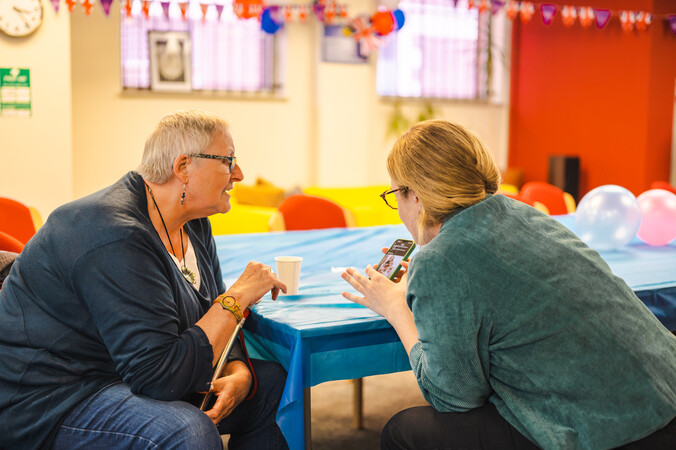Hi there, i’m a researcher designing for our complex health and ageing futures
Empowering Senior Voices
Co-Investigator, RMIT University
2025
Co-Investigator, RMIT University
2025
A City North Activation Initiative in Melbourne, Empowering Seniors Voices ︎ use Standford’s Our Voice Discovery tool to document features of the communities that impact older adults ability to lead healthy lives. Through photowalks, stakeholder workshops, and interactive exhibits, explore inclusive, age-friendly neighbourhoods through participatory civic data and storytelling.

New Models of Long COVID Care
Research Fellow, RMIT University
2025 - Present
Research Fellow, RMIT University
2025 - Present
As part of the Long COVID Assessment Management and Practice (LAMP) project ︎, I am exploring the experiences of people with long-COVID alongside medical and allied health professionals. Taking an experience-based co-design approach, the aim of this research project is to drive more inclusive models of care for those living with long COVID. Part of the Eat Move Heal Network ︎

Enhancing Networks of Care
Research Fellow, University of Edinburgh
2023 - 2025
Research Fellow, University of Edinburgh
2023 - 2025
As part of the Advanced Care Research Centre ︎, I coordinated a work package component that investigated the role of community-led, service-enabled, and technology-driven care networks. Focusing on supporting healthier and more resilient networks of care, I was situated within the Institute for Design Informatics ︎

Designing for Social Engagement in Later Life
PhD Researcher, RMIT University
2019 - 2023
PhD Researcher, RMIT University
2019 - 2023
Designing social engagement technologies with older Australians, my doctorate demonstrated how modes of interpretative flexibility can support interaction designers in co-creating with ageing communities.

Journey Mapping Long COVID
Research Assistant, RMIT University
2022
Research Assistant, RMIT University
2022
Recognising the lack of understanding around the experiences of people with long COVID, I supported a 3-month study mapping patients' experiences, as part of the multi-school, multi-college collaborative Eat Move Heal Network ︎. Our longitudinal mixed methods analysis highlighted the role of agency and social support in their lives